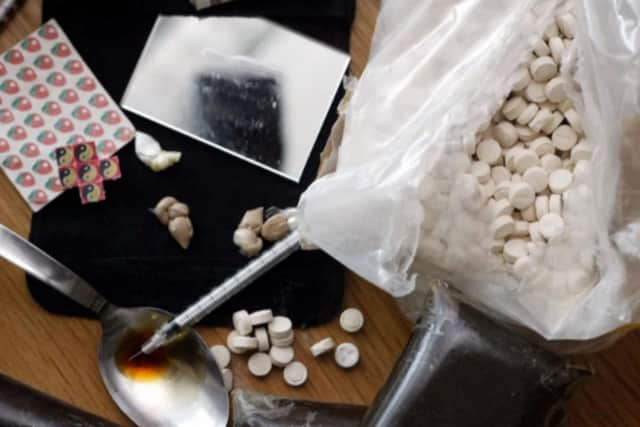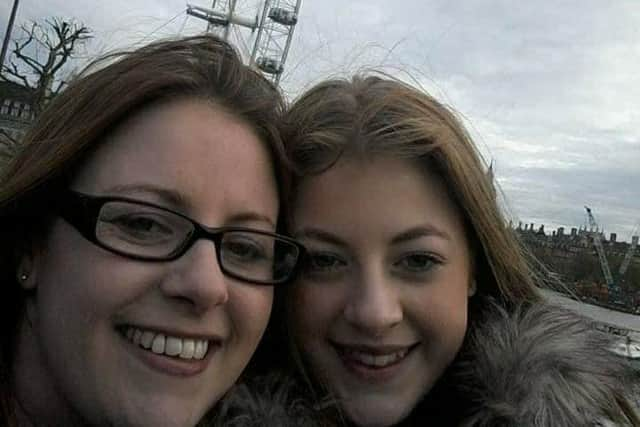Police working to reduce demand and supply following rise in drug deaths in North Yorkshire
The number of deaths in North Yorkshire and York increased from 73 in 2020 to 90 the following year, and many involved the use of multiple drugs, including illicit substances and prescription and over-the-counter medications.
During one hearing this week, Alison Norton, assistant coroner for the region, opened the inquests into three of those deaths and said the post mortem examinations found each of the men had overdosed.
Advertisement
Hide AdAdvertisement
Hide AdDaniel Hughes, a 30-year-old from York, died after taking multiple drugs in August. Steven Innes, 34, died on Christmas Eve at his partner’s house in Selby after taking amphetamines, and Danny Aldrich, 27, was found dead at his home in York on the same day after taking heroin.


North Yorkshire Police recently altered its strategy to dealing with drugs and renewed its focus on reducing demand by helping users access treatment and overcome their addictions.
Detective superintendent Fran Naughton said the force ensures “help is provided at the earliest opportunity”, by referring users who have been arrested to treatment services and offering specialist support to teenagers who are caught with drugs.
“The more youngsters who receive this professional support and care, the more we can steer away from heavy, long-term use and addiction and the associated individual and public health harms, including crime,” she said.


Advertisement
Hide AdAdvertisement
Hide Ad“Drugs and alcohol are complex public health challenges, and undoubtedly cause harm to individuals, families and communities. Everyone has a unique personal story, often tied up with trauma, abuse, mental health or other adversity.”
But she also said the force “makes no apologies” for cracking down on drug–related crime and it is working to dismantle the operations of county lines drug gangs.
The gangs are usually based in cities, but they sell to customers in more rural areas via dedicated phone lines, known as county lines.
They often use children to traffic and sell drugs and coerce them into committing acts of extreme violence.
Advertisement
Hide AdAdvertisement
Hide AdLast year, 26 county lines were identified by North Yorkshire Police, as the region is targeted by gangs in Merseyside, Manchester, West and South Yorkshire and London. The force said it has shut down the majority of those lines, but some have already been replaced.
One of the teenagers who sold MDMA to 15-year-old Leah Hayes for £10, shortly before she collapsed in a Northallerton car park and died in 2019, was involved in a county lines gang.
Her mother Kerry Roberts said: “They target our children and get them to deal to other children. They do that because children get a slap on the wrist when they get caught.
“People think that things like that don’t happen to our children in our quiet, little towns.
Advertisement
Hide AdAdvertisement
Hide Ad“I don’t think they understand how easily it is coming into our towns.”
She is now running a campaign which calls on the Government to change the law and make selling drugs to children under 16 a specific criminal offence, which carries harsher punishments.
Lee Wilson, a director of the treatment charity North Yorkshire Horizon, said there is a misconception that North Yorkshire does not have issues with drug and alcohol abuse because it is a largely rural and affluent area.
“That perception is false. The county has unique challenges and pockets of deprivation,” he said.
Advertisement
Hide AdAdvertisement
Hide Ad“There’s also the rurality, given that it’s England’s biggest county, so the risk of isolation is very real.”
Mr Wilson also said it is not clear what has led to an increase in drug-related deaths in the region and across the country, but the pandemic has clearly left more people struggling with isolation and various mental health issues.
He has also welcomed a significant increase in people seeking treatment from North Yorkshire Horizon during the pandemic.
“Members of the public might think that means that more people need help. It doesn't, it means that more people are coming forward for help,” he said.
Advertisement
Hide AdAdvertisement
Hide Ad“We did Covid risk assessments on day one, the services have remained up and fully accessible. We don't have waiting lists and people can get access to treatment in North Yorkshire extremely quickly.”
He added: “People are absolutely categorically safer when in treatment, rather than out of treatment, and you'll see more drug and alcohol-related deaths of people outside treatment than those seeking treatment.”
For more information about treatment, you can visit the North Yorkshire Horizon website or phone the charity on 08000 14 14 80
